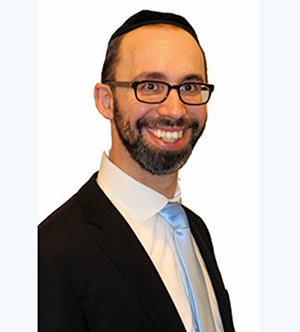
The Jewish calendar is the only calendar that has two days of New Year in every year! The first one is Rosh Hashana (Alef Tishrei), the first day of the new year. The second one is Rosh Chodesh Nisan, “It shall be the first to you for the counting of the months” (Parshat Bo 12:2). The order of the months (Nisan, Iyar, Sivan, etc.) thus starts from Nisan. What a bizarre setup! Why should the counting of the days of the new year start on Rosh Chodesh Tishrei, yet the order of the months start from Rosh Chodesh Nisan—technically, the seventh month—right in the middle of the year?
The Gemara in Rosh Hashana 11a relates an argument between Rabbi Eliezer and Rabbi Yehoshua, whether Hashem created the world in Tishrei or in Nisan; Tosafot, however, explains that in truth they are not arguing, but rather they are referring to different periods of the world’s history. Hashem decided to create the world in Tishrei; however, Hashem waited until Rosh Chodesh Nisan to actually create it.
Why would there be two separate times, one when Hashem decides to make the world and the other when Hashem carries out His decision? This is similar to building a house: there is a planning stage and a construction stage. First, one must hire an architect and draw up plans for the house, and then only after the plans are concluded can the construction begin. The planning is vital; after completion, the constructed home will only look as good as the plans have caused them to look. As we say in Lecha Dodi, “Sof ma’aseh b’machshava techila,” the end result lies in the initial planning.
Rosh Hashana is our time to plan and decide what we want to accomplish in the coming year, while Rosh Chodesh Nisan is the time to make the plans come to a reality. This explains why the Exodus from Egypt took place in Nisan, the month of action. Nisan was when the plan for creating the world was being actualized. The world was created for the sake of Israel (as Rashi says at the beginning of Bereishit), so Israel’s birth as a nation was the execution of the plan that had been formed in Tishrei, 2,000 years earlier!
The Hebrew word for “year” is “shana.” This word is closely related to the words “yoshon” (old) and “shayna” (sleep). A year defines a period of growing older. Physical items have a finite time to exist, and the older they get the less strong they are. Things grow stale; they get tired. Everyone needs to sleep after being awake for a certain number of hours; that is a product of the reality of time. Rosh Chodesh, however, is the symbol of renewal. It represents the power that Hashem gave the Jewish people to always remain vibrant. New ideals or ideologies are naturally enticing to human-kind because people get bored with what they have and want something new, fresh and vibrant. However, the Jew and the Torah have not changed since Mount Sinai, over 3,000 years ago. In many ways, baruch Hashem, we are even more vibrant, as we take on the challenges that attempt to alter or defeat us.
The renowned mechanechet Rebbetzin Sima Spetner once related how she was involved with a girl who was no longer observant. This girl told the rebbetzin how she hated Shabbos as a child, while another girl told the rebbetzin how she loved Shabbos and Yom Tov. The girl who hated Shabbos explained that every Erev Shabbos her mother would be as tense as a tiger, screaming and yelling, “Clean up your room; why are you not helping!” The girl who loved Shabbos related how Shabbos was such a delight; the mother would prepare many things Thursday night and by Friday morning the table was already set. There was a feeling of excitement in the air.
Pre-Pesach is a tense time, with all the effort and time needed to turn our homes into chametz-free zones. This is a challenging yet very opportune and powerful time. It is a time of vibrancy, a time to develop incredible vigor and excitement in observing the mitzvot. Rosh Chodesh Nisan empowers us with the tools to remain vibrant and fresh. The energy, excitement and vigor that we develop during this period is the key to actualizing all our lofty Rosh Hashana plans and making them a reality.
May Hashem help us use this power that we are receiving to create an excitement for Pesach, an excitement for adherence to the mitzvot and an excitement in our service of Hashem.
By Rabbi Baruch Bodenheim
Rabbi Baruch Bodenheim is the associate rosh yeshiva of Passaic Torah Institute (PTI)/Yeshiva Ner Boruch. PTI has attracted people from all over northern New Jersey, including Teaneck, Bergenfield, Paramus, Rockaway and Fair Lawn. He initiated and continues to lead a full multi-level gemara learning program in the evenings, gives halacha and hashkafah shiurim on Shabbat and, more recently, has spread out beyond PTI to begin a weekly Beit Medrash program with in-depth chavruta learning in both Livingston and Springfield, New Jersey.










